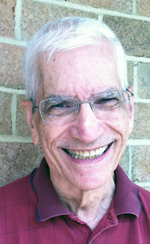
NEW YORK — After a fairly lengthy period of no communication between them, a successful young Manhattanite phones his mother in Florida.
When she answers, the son comments, “Mom. you sound weak; Is everything okay.”
“Well,” she says, “I haven’t eaten in three days.”
“Why not?” the son, alarmed, demands.
“Well,” she explains, “I didn’t want to have food in my mouth. in case you called.”
Ouch! Talk about Jewish guilt.
But guilt of any ethnicity can surface in less-hurtful settings, as well.
At a gathering of relatives and long-time friends, a former Staten Islander who’d moved to New Jersey, said he “felt guilty” that he had not called two people with whom he’d promised to stay in contact.
“Jewish guilt is good,” I said, partly to make him feel better, but also sincerely believing that guilt of any ethnicity — Jewish or otherwise — is truly good if it prevents future wrongdoing or inspires performance of a good deed.
In a funny coincidence, at the moment I was extolling the benefits of Jewish guilt, a niece by marriage declared, “So is Catholic guilt.” She went on to say that her son had “the best of both worlds” — Catholic guilt from her, his Catholic mother,
and Jewish guilt from his Jewish father.
No one took issue.
Sometimes, guilt-related performance of the right action emanates from high places. One notable example involved the great left-handed pitcher Sandy Koufax and the 1965 World Series.
L’havdil (pardon the comparison), You could call it major league baseball’s high holiday week, with up to seven days of competition for baseball’s highest team accomplishment.
Koufax, a Jewish kid from Brooklyn, an outstanding major-league pitcher, was slated to play a leading role. Specifically, he was scheduled to pitch for the Los Angeles Dodgers against the Minnesota Twins in the first game of the best-of-seven series for the World Championship. But due to an accident (?) of fate or faith (religious observance), that was also the day on which Yom Kippur fell that year.
It was no secret that Sandy did not want to violate the highest of Jewish Holy Days by pitching that day. But there was also the challenge of loyalty to his team. He planned to consult a rabbi before making his decision about whether to pitch that day. “If I’m told it isn’t proper to pitch that day, then I won’t because I wouldn’t feel right about it,” he said..
Religion-hip fans uttered prayers for rain — so that the game would be postponed a day, but those prayers went unheeded. Some Jews secretly or openly prayed that Sandy would relent and do the undoubtely guilt-laden pitching that Yom Kippur day.
Koufax came down on the side of religious observance. So you might say — but probably wouldn’t — that he chose fast over fastball.
Meanwhile, Don Drysdale, a formidable pitcher in his own right, took Sandy’s place, and lost the first game, With a sort of baseball gallows humor, he joked:
“I’ll bet Walter Alston (the Dodgers manager) wishes I was Jewish, too” (and thus wouldn’t have pitched that first game either.)
‘Eventually, justice triumphed. After another shaky outing, .Koufax and other Dodger pitchers tasted victories, and the Dodgers went on to win the Series.
If there’s a moral here,it might go something like this: “If you’re beset by Jewish. guilt, embrace it, and good things will follow.”
Let’s hope.
*
Joel H. Cohen is a freelance writer based in New York City.